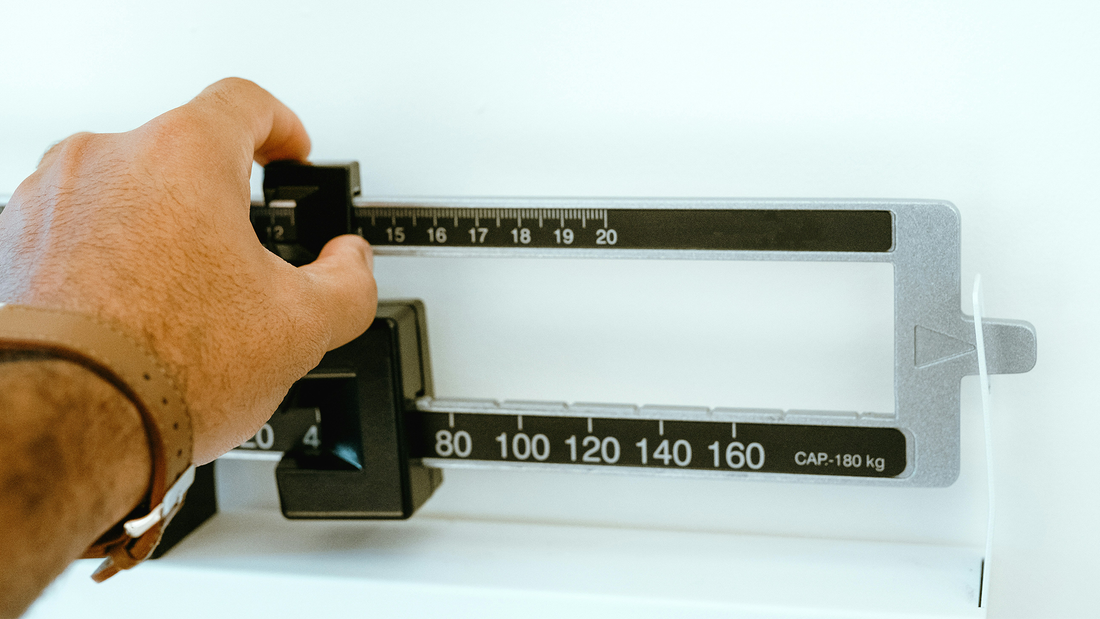

Muscle vs Fat Weight: Which Weighs More?
It is a common misconception that muscle weighs more than fat. Many people believe that if they gain muscle mass through strength training and build up their muscles, they will gain weight on the scale. However, this is not entirely accurate. Understanding the difference between muscle vs. fat weight has important implications for fitness and health.
Building muscle mass increases strength for physical performance and daily activity. It also boosts metabolism because muscle tissue is metabolically active, burning calories even at rest.
The Difference Between Muscle vs. Fat Weight
Body weight reflects a combination of muscle weight, fat weight and other factors, but do muscles or fat weigh more? Considering the role of each can help you dispel some common misconceptions.
Understanding Muscle Weight
Muscle weight refers to the total mass of skeletal muscle tissue in the body. Skeletal muscles are the voluntary muscles that attach to bones by tendons and that control bodily movements and posture.
The weight of muscle comes from its main components of water, protein and glycogen. Water accounts for about 75% of muscle's weight. The protein actin and myosin make up about 20% and provide the fibers that enable muscles to contract. Glycogen, the stored form of glucose, accounts for 5% and provides an energy source for muscle activity.
Skeletal muscles play several crucial roles in the body. First, they allow for a wide range of movements such as walking, lifting and sports activities by transforming chemical energy into mechanical energy and generating force. They also help maintain posture and provide joint support and protection.
Additionally, muscle plays a major role in metabolic function. Pound for pound, skeletal muscle burns more calories than fat tissue, so the greater someone's muscle mass, the higher their resting metabolism. Resistance training to build muscle can help increase resting metabolic rate. This is because the protein turnover and repair of muscle tissue after exercise requires energy expenditure.
Having more muscle vs. fat weight also confers several health and performance benefits. Greater muscle strength from resistance training enhances athletic performance, speed and power. It also enables a higher level of daily physical activity and helps prevent injury by protecting joints. Lastly, the increase in muscle mass significantly improves body composition. Since muscle takes up less space than fat, it creates a tighter, leaner physique at the same body weight.
Considering Fat Weight
Fat weight refers to the total mass of adipose tissue in the body. Adipose tissue consists of adipocytes, or fat cells, that store energy in the form of lipids.
The main components of fat tissue are triglycerides, which make up about 90% of the weight of fat. The rest consists of water, cholesterol, fatty acids, glucose and other substances. Unlike muscle, fat does not contract and its main functions are to insulate the body, cushion internal organs and store energy in the form of fat.
There are several types of fat in the body. Subcutaneous fat sits just under the skin while visceral fat surrounds internal organs. Intramuscular fat accumulates in skeletal muscle. Brown fat contains many mitochondria that can generate heat and burn calories. White fat stores and releases energy. Having some fat is essential for health but excess amounts, especially visceral fat, can increase disease risk.
The Truth About Muscle Weight vs. Fat Weight
The truth about muscle vs. fat weight is that a pound of muscle and a pound of fat both weigh one pound. The confusion comes from the fact that muscle takes up less space than fat due to its greater density. While equal weights of muscle and fat weigh the same, the muscle has a more compact, dense structure. So while gaining muscle doesn't make you gain weight per se, it can change your body composition.
Density refers to how compact or compressed a substance is. Muscle has a higher density than fat, meaning a given volume of muscle tissue weighs more than the same volume of fat tissue. You can become leaner and tighter at the same weight by reducing fat and increasing muscle density through strength training. Understanding this principle helps overcome the misconception about muscle and fat weight.
This illustrates why body composition is more important for fitness and health than the number on the scale. Evaluating the balance of muscle density versus fat volume better assesses progress than weight alone.
The Impact of Muscle vs. Fat Weight on Body Shape
While muscle and fat both contribute to overall body weight, they have very distinct effects on your physical appearance and health. This is because muscle is densely packed while fat is less compact. As a result, gaining muscle mass can actually lead to a tighter, leaner physique. On the flip side, losing weight does not always equate to a fitter, healthier body.
Though a pound of muscle weighs the same as a pound of fat, it takes up significantly less space. Muscle fibers are neatly bundled in repeating patterns that pack tightly together. Fat cells have a more open, random structure with gaps between cells. So a person with a higher ratio of muscle to fat will have a more firm, toned look than someone with a higher percentage of body fat.
This is why the scale doesn’t give the full picture of your body composition and fitness level. Two people can weigh the same amount but look vastly different based on their muscle-to-fat ratio. Judging by appearance and ability to move well, lift heavy things and metabolize food efficiently is more telling than a lower number on the scale. The goal should be optimizing health and functionality by maximizing metabolism-boosting muscle while keeping fat within a healthy range.
The Comparison of Muscle vs. Fat Weight
When it comes to muscle versus fat, it's important to understand that a pound is a pound regardless of tissue type. The number on the scale cannot distinguish between compact muscle and less-dense fat. Adding lean muscle mass through strength training can boost metabolism, athletic performance and mobility while reducing injury risk. It creates a tighter, toner appearance without necessarily reducing your weight.
This toning, rather than the number on the scale, will lead to lifelong fitness, health and ideal body composition and less confusion over muscle vs. fat weight. Check out the ZOZOFIT app for more tools that you can use to monitor your body composition changes over time.

![zf-w-[168px] zf-h-[40px]](http://zozofit.com/cdn/shop/t/15/assets/logo-desktop.png?v=117713855448369080381753069598)


